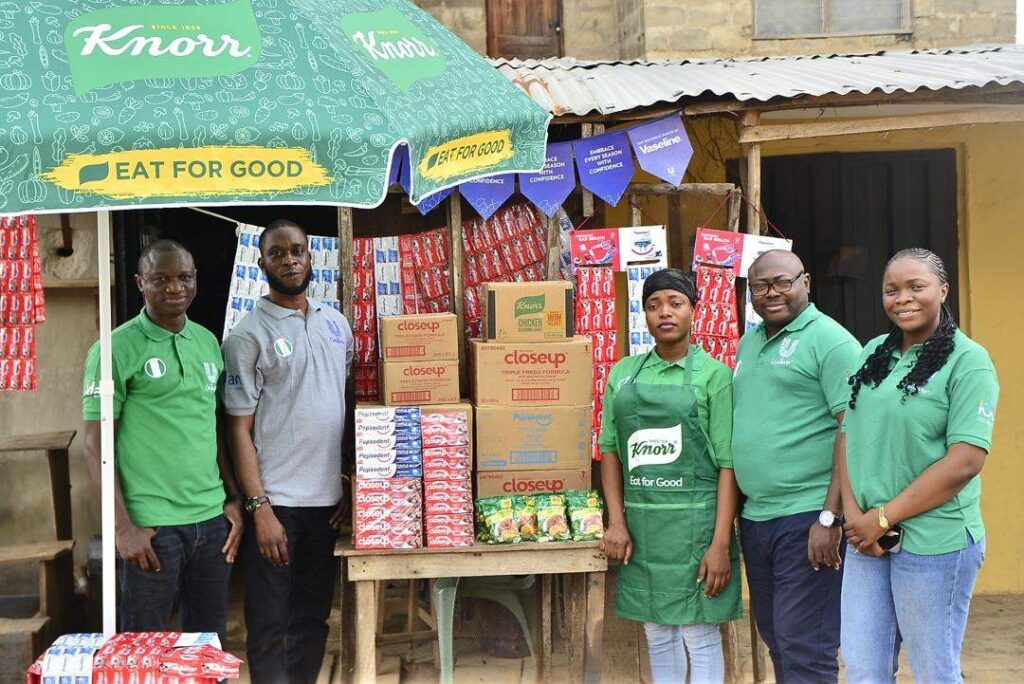Unilever Nigeria is making a profound impact on women’s empowerment through its Shakti initiative, which has empowered over 13,000 women across 21 states and the Federal Capital Territory (FCT).
The programme, aimed at improving the livelihoods of women in underserved areas, provides them with the tools, training, and resources necessary to start their own micro-businesses. By focusing on entrepreneurship, Unilever Nigeria is helping these women achieve financial independence while fostering socio-economic development in their communities.
The Shakti initiative was launched in 2014 with the goal of uplifting women, especially those in rural areas, by creating opportunities for them to distribute and sell Unilever products. Over the years, it has grown into one of the company’s most successful social impact projects.
By 2023, an additional 3,000 women were added to the programme, bringing the total number to over 13,000. The initiative has become a beacon of hope, showcasing the potential of women to drive business success and community growth.
Unilever’s Shakti Programme: A Pillar of Empowerment
The Shakti programme is designed to empower women by giving them the opportunity to become entrepreneurs within their own communities. The women, known as “Shakti entrepreneurs,” sell Unilever products door-to-door, creating a network of micro-entrepreneurs who contribute to the local economy. Beyond just selling products, the women receive comprehensive training on sales, customer service, and basic financial management, helping them build sustainable businesses.
By providing women with a means to generate income, Shakti not only improves their personal financial stability but also enhances their business acumen. Many of these women start with minimal resources, but through the programme, they are able to grow their businesses, reinvest profits, and support their families.
One of the most inspiring success stories is that of Alhaja Gbemisola Sherifat Ogunremi from Ibadan, who started as a petty trader and is now a thriving businesswoman. She credits the Shakti programme for giving her the skills and confidence to achieve her dreams.
The success of the Shakti programme is further bolstered by the support of field agents and mentors. These agents play a critical role in guiding the women, providing hands-on training and helping them navigate the challenges of running a business. They ensure that the Shakti entrepreneurs understand how to track sales, manage their inventory, and engage effectively with their customers.
Expansion of Women’s Business Skills and Economic Independence
One of the key strengths of the Shakti programme is its focus on capacity building. Unilever doesn’t just provide products for the women to sell, it offers training sessions that cover various aspects of business management, including sales tracking, customer engagement, and financial planning. This comprehensive approach ensures that the women are equipped with the skills they need to succeed in the long term.
The financial independence gained through the Shakti programme is transformative for many women. For instance, some of the women have been able to invest in education for their children, improve their homes, and even fulfill personal goals, such as funding pilgrimages or furthering their own education. The ripple effect of this empowerment is felt not just within their households but also in the broader community, as these women often become role models and mentors for others.
In addition to financial benefits, the Shakti programme promotes a sense of community and solidarity among the women. Through regular meetings and mentorship sessions, the women are able to share their experiences, learn from one another, and build a network of support that extends beyond the scope of the programme.
Supporting Local Economies and Beyond
The Shakti initiative contributes significantly to local economies by promoting entrepreneurship and self-sufficiency. As these women grow their businesses, they create job opportunities within their communities, further stimulating economic activity. The initiative helps reduce poverty in rural areas by providing women with the tools and resources needed to become financially independent.
Unilever’s commitment to supporting local economies goes beyond the Shakti programme. The company sources a large percentage of its raw materials from local farmers, supporting over 10,000 cassava farmers in Nigeria. By doing so, Unilever is not only creating jobs but also fostering sustainable agricultural practices. This local sourcing strategy is part of the company’s broader effort to reduce its environmental footprint and contribute to the country’s economic growth.
Unilever’s Ongoing Commitment
As Unilever Nigeria continues to expand the Shakti programme, it remains committed to empowering more women across the country. The company’s goal is to bring even more women into the programme in the coming years, further strengthening its impact on Nigerian society. This commitment aligns with Unilever’s global objective of empowering 5 million women by 2025.
Unilever’s initiatives extend beyond the Shakti programme. The company has also partnered with organizations like UNICEF to launch the Future-X Campus Ambassadors Program (FUCAP), which aims to equip Nigerian youth with essential job skills. Through this initiative, Unilever is helping to prepare the next generation of Nigerian workers for meaningful employment, contributing to the country’s long-term socio-economic development.
